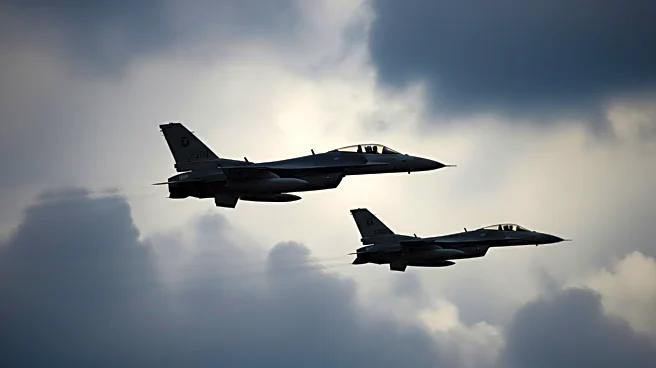What is the story about?
What's Happening?
The Zapad-2025 military exercises, conducted by Russia and Belarus, have sparked unease across Europe due to their scale and the presence of U.S. military observers. The drills, held at the Borisov training ground in Belarus, involved around 1,000 Russian troops and 7,000 Belarusian forces. This year's exercises are notably smaller than previous iterations, reflecting Russia's manpower shortages following its war in Ukraine. The presence of U.S. officials at the exercises has been highlighted by Russian and Belarusian media, suggesting a global significance to the drills. European nations are concerned about the implications of these exercises, especially given recent Russian drone incursions into Poland and Romania.
Why It's Important?
The Zapad-2025 exercises underscore the ongoing tensions between Russia and NATO countries. The reduced number of Russian troops participating highlights the strain on Russia's military resources due to its ongoing conflict in Ukraine. The presence of U.S. observers could indicate a shift in U.S. policy towards Russia, raising concerns among European allies about the U.S.'s commitment to isolating Russia. The exercises also serve as a reminder of the potential for military escalation in Eastern Europe, prompting countries like Poland to bolster their defenses. The situation reflects the broader geopolitical struggle between Russia and Western nations, with significant implications for regional security and international relations.
What's Next?
European countries are likely to continue monitoring the situation closely, with potential diplomatic discussions on how to address the security challenges posed by Russia's military activities. Poland's deployment of additional troops to its border with Belarus and the closure of its border with Belarus are immediate responses to the exercises. The international community may also see increased calls for dialogue and de-escalation to prevent further military confrontations. The U.S.'s future actions and statements regarding its stance on Russia will be critical in shaping the geopolitical landscape in the region.















